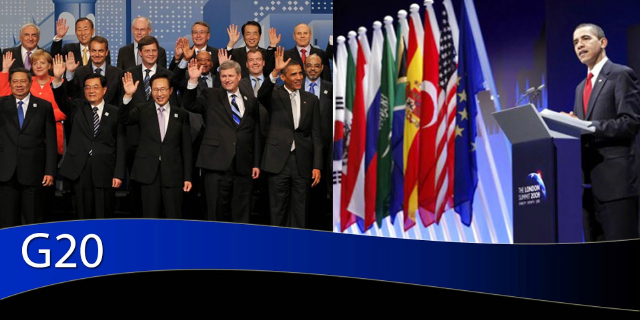On 4-5 September, 2016, the 11th G20 Summit will be held in Hangzhou, China, and President Xi Jinping along with the leaders from other member states, guest countries and international organizations will get together in this beautiful city to discuss ways to advance global economic cooperation and development. The whole world will focus its attention to the G20, to China, and to Hangzhou.
Right now, the world economy is in a crucial transformation with both opportunities and challenges. First, the old approach of stimulating growth merely through fiscal and monetary policies has become less and less effective. Second, policies of the major economies have clearly diverged, making it harder to form synergy. Third, trade and investment protectionism is rearing its head, and the building of an open economy remains a long and daunting task. And fourth, the world economy, though recovered somewhat from the crisis, is still weak in growth and under constant downward pressure.
At this juncture, the international community is full of expectations of this year’s G20 Summit, hoping that outcomes from the Hangzhou Summit will reenergize the world economy. As the host, we are keenly aware of the heavy responsibilities on our shoulders. At the Hangzhou Summit, we would like to focus on the core challenges and outstanding issues confronting the world economy and work with all parties to seek common solutions, contribute China’s wisdom, and promote common development.
China has chosen “Toward an Innovative, Invigorated, Interconnected and Inclusive World Economy” as the theme of the Hangzhou Summit and identified four key priorities, namely, “breaking a new path for growth”, “more effective and efficient global economic and financial governance”, “robust international trade and investment”, and “inclusive and interconnected development”. The theme and topics proposed by China have received strong endorsement and support from other G20 members. They all agree that China’s vision embodies long-term, strategic considerations and demonstrates a broad perspective and ambitious goals.
According to statistics, the Hangzhou Summit is likely to achieve nearly 30 major results, which will make it the most fruitful one compared with previous summits. In terms of the general direction, we will forge new impetus to promote the robust, sustainable and balanced growth of the world economy through advocating innovation. We will come up with new proposals to resolve various difficulties faced by current economic and financial sectors through advancing structural reform. We will also explore a new prospect in leading the global implementation of the 2030 Agenda for Sustainable Development through enhancing development cooperation.
During the first half of this year, the Chinese economy maintained a stable growth while making some progress. China’s GDP grew by 6.7%, and its key indicators were in line with expectations. Major progress has been made in structural adjustments, and the quality of economic growth has been improved. The service sector as a proportion of GDP rose to 54.1%, and energy consumption per unit of GDP declined by 5.2%. In particular, the employment remained stable with 7.17 million jobs created during the first six months. China’s economy is still the “driver” and “anchor” of the global economy. In 2015, China contributed roughly 30% to global economic growth. The contribution rate is expected to remain at a relatively high level this year. The bright future of China’s economy will make the international community believe that, the Hangzhou Summit will certainly live up to the world’s trust and expectation.
As the largest developing country, China takes due responsibility and obligation for safeguarding and expanding the just rights and interests of developing countries. To this end, China has invited Laos, ASEAN Chairmanship, Chad, the Presidency of the African Union, Senegal, the Presidency of the New Partnership for Africa’s Development and other two representative developing countries, Kazakhstan and Egypt, to attend the Hangzhou Summit. As G77 presidency, Thailand also expressed its willingness to participate in the G20 Summit. The Hangzhou Summit, with more participation of developing countries than ever in the history of G20, will therefore be more representative and inclusive in its composition.
Just as Mr. Wang Yi, Foreign Minister of China said, the message China hopes to convey is that the G20 belongs not only to its 20 members but also to the whole world, and that the G20 cares about not just its own interests but the common development of all in the world. China and Afghanistan are close and friendly neighbors. Both being developing nations, our two peoples share common aspiration for better lives and this presents a broad prospect of cooperation for development. Afghanistan is a priority in China’s neighborhood diplomacy as well as its Belt and Road Initiative. China will continue to support the Afghan National Unity Government, continue to support the social and economic reconstruction of Afghanistan, continue to support the Afghan-led and Afghan-owned peace & reconciliation process, and continue to support the integration of Afghanistan in regional cooperation. China encourages and supports Afghanistan to play an active role in regional connectivity, energy transport and regional trade, with its geographical advantage and resource endowment. China also expects and believes that the outcomes of the Hangzhou Summit would bring more benefits to Afghanistan.
Home » Opinion » The Upcoming G20 Summit in China: Aims to Promote Common Development
The Upcoming G20 Summit in China: Aims to Promote Common Development
| Yao Jing

